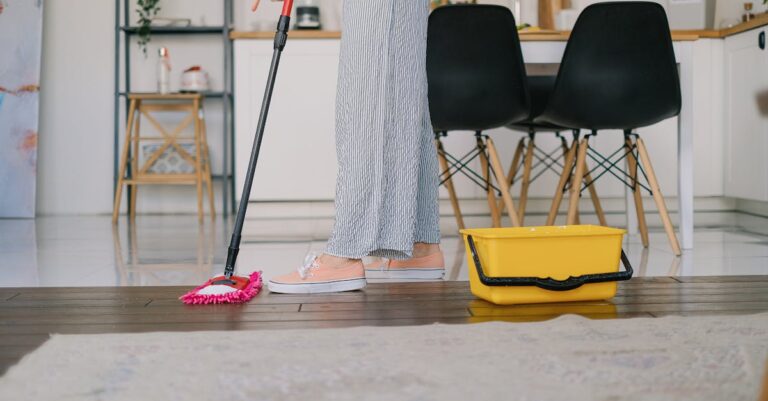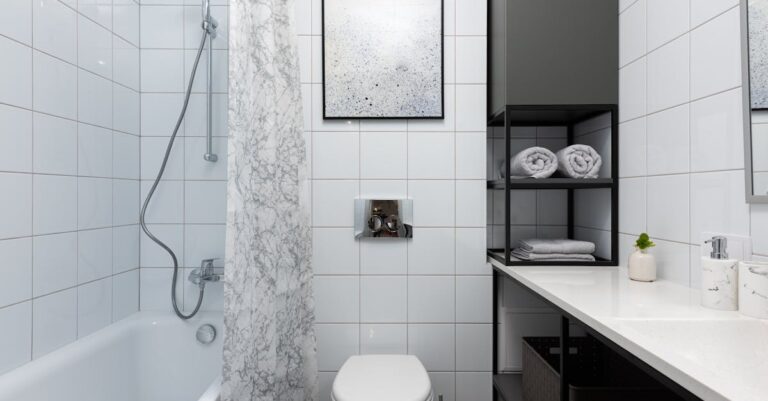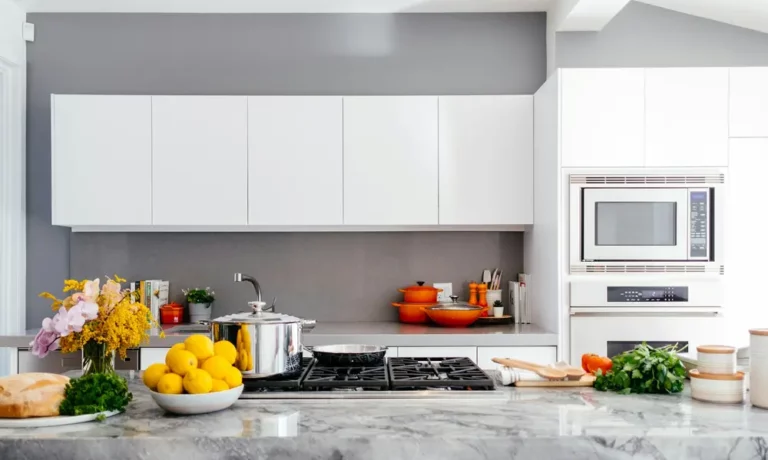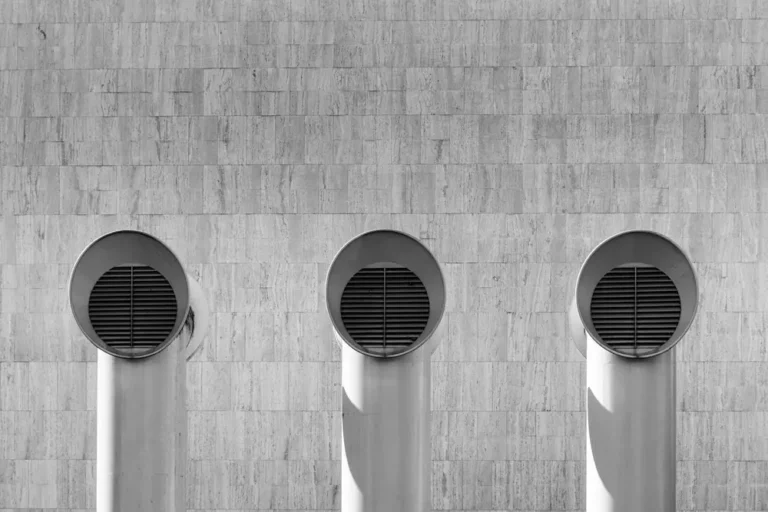Water Pressure Starts Strong Then Drops: Reasons and Solutions
Water pressure is an essential aspect of modern living, ensuring a steady flow of water through our homes for daily tasks like cooking, cleaning, and showering. However, issues like a sudden and substantial drop in water pressure can pose a significant inconvenience and even result in damage to household appliances. In this article, we will explore the intricacies of water pressure, including an understanding of its fluctuations and potential solutions to common problems homeowners face.
A strong, consistent water pressure is vital for the efficient functioning of a home’s plumbing system. When homeowners encounter intermittent water pressure or a noticeable decline in force, it can be both frustrating and challenging to pinpoint the exact cause. Identifying the reasons behind these shifts and addressing them promptly is crucial to avoid further and potentially costly complications.
Key Takeaways
- Water pressure plays a critical role in daily household activities and the overall performance of plumbing systems.
- A sudden drop or intermittent water pressure could indicate underlying issues that need immediate attention.
- Implementing appropriate solutions and preventive measures ensures a strong, consistent water pressure, maintaining the longevity and efficiency of appliances and plumbing networks.
Understanding Water Pressure
Water pressure is an essential aspect of our daily lives, influencing the performance of showers, taps, and appliances. In this section, we will discuss the mechanics of water pressure and its impact on everyday experiences.
The Mechanics of Water Pressure
Water pressure, often measured in pounds per square inch (psi), is the force exerted by the water in a pipe or system. High water pressure usually means water flows forcefully from faucets and showerheads, while low water pressure indicates a weak flow.
Several factors affect water pressure, including the height of the water source, diameter of pipes, and any obstructions in the plumbing system. The following points provide an overview of these factors:
- Height: Water pressure is directly proportional to the height of the water source. A water tower or reservoir at a higher elevation will result in a higher water pressure at the taps.
- Pipe Diameter: Larger pipes usually have a lower water pressure drop compared to smaller pipes. A small pipe increases the resistance, thus leading to a decrease in water pressure.
- Obstructions: Blocked pipes, partially closed valves, or leaks can greatly reduce water pressure as they hinder the flow of water through the system.
Pressure Impressions in Daily Life
In our daily lives, water pressure affects the operation of various appliances and fixtures. Here are a few examples:
- Showers: A high water pressure ensures a strong and steady flow, while a low pressure may lead to a diminished shower experience.
- Taps: Water pressure influences how quickly the sink fills and how effectively it can wash dishes or hands.
- Appliances: Washing machines and dishwashers may not operate optimally if water pressure is too low. They require a certain level of pressure to function efficiently and complete their cycles.
It is crucial to maintain a balanced water pressure in the plumbing system to ensure the optimal functioning of household appliances and provide a comfortable living environment.
Common Reasons for Water Pressure Issues
Plumbing System Issues
There can be a number of plumbing system issues that cause water pressure to start strong and then drop. Some of these include clogged pipes, damaged valves, and leaks. Clogged pipes can occur due to minerals and other debris building up inside the pipes. Mineral deposits affect water flow and may require pipe replacement or cleaning. On the other hand, damaged valves may not open fully or close properly, leading to pressure fluctuations. Lastly, leaks in the plumbing system can cause reduced pressure since water is escaping from the pipes.
Problem with Main Water Supply
Another possible reason for water pressure issues is a problem with the main water supply. This could be due to a blockage in the main water line, a faulty pressure regulator valve or water pressure reducing valve (PRV), or an issue with the main water shut-off. A blockage in the water supply pipe can be caused by external factors, such as soil or root intrusion, or internal factors, such as mineral buildup. A faulty pressure regulator valve can prevent sufficient water pressure from reaching yourproperty. Lastly, a partially closed main water shut-off may be unintentionally restricting the water flow.
Impact of Well Water on Pressure
For those using well water, pressure issues can arise from a few factors related to the well system. The well pump plays a crucial role in maintaining water pressure, and a faulty pressure switch could lead to inconsistent pressure levels. Additionally, the pressure tank is responsible for storing water and maintaining pressure; issues with the tank can affect water pressure. Air bubbles in the plumbing system could also be a factor. A clogged aerator might trap air in the system, leading to pressure fluctuations. Ensuring all components of the well system are functioning properly should help in maintaining consistent water pressure.
Identifying Water Pressure Problems
Spotting Leaks
Detecting leaks is essential for maintaining consistent water pressure. Common signs of leaking include damp spots on walls, floors, or ceilings. Frequently check around appliances such as dishwashers, washing machines, and running toilets for accumulating water.
Checking for Clogs
Clogs may cause water pressure to drop significantly. Inspect clogged pipes and clogged aerators that may restrict water flow through faucets, showerheads, and other fixtures. Cleaning aerators and removing sediment buildup can often resolve pressure issues.
Assessing Water Supply Connection
Examine the main water shut-off valve to ensure it is fully open. If partial, it can reduce water pressure in the entire house. Additionally, check the water supply pipe coming into the home for damage or blockages that may affect water pressure.
Inspecting Water Heater
A malfunctioning water heater can affect hot water pressure. Make sure the temperature and pressure relief valve (TPR) is functioning correctly. Check for sediment buildup inside the tank or inspect the unit for potential leaks. Timely maintenance of the water heater plays a vital role in maintaining optimal water pressure.
Solutions for Water Pressure Issues
Fixing Leaks
Detecting and repairing leaks in your plumbing system can significantly improve your water pressure. Check for leaks in pipes, faucets, and other fixtures throughout your home. If you’re unsure how to identify a leak, consider hiring a professional plumber to locate and fix the issue. Regularly inspecting and repairing leaks ensures optimal water pressure and prevents damage to your home’s plumbing system.
Unclogging Blockages
Clogs in pipes and fixtures can also reduce water pressure. To unclog blockages, start by checking your faucets and showerheads for mineral buildup. Soak them in a cleaning solution to remove debris, or replace them if necessary. If you continue to experience low water pressure, a professional plumber can inspect your pipes and plumbing system to locate and remove any obstructions.
Adjusting Water Pressure Regulator
An improperly set water pressure regulator can cause fluctuations in water pressure. The average water pressure in most homes is between 40 to 60 psi. Locate the pressure regulator valve on your main water line, typically near the main valve or water pressure reducing valve (PRV). Use a wrench to carefully adjust the valve until the desired water pressure is reached. Be cautious not to overtighten or adjust too quickly, as this can cause damage to the regulator.
Maintaining Well and Pump System
For homes with a well and pump system, regular maintenance is crucial for consistent water pressure. Check your well pump for damages or malfunctions, and ensure the pressure tank is operating at the correct psi. It’s essential to have your well pump and pressure tank serviced by a professional to keep the system functioning efficiently.
By implementing these solutions and regularly checking for leaks, clogs, and proper water pressure regulator settings, you can maintain strong and consistent water pressure throughout your home. Always consult with a professional plumber for assistance when necessary.
Preventive Measures
Regular Plumbing Maintenance
Regular plumbing maintenance is essential to prevent water pressure issues. Make sure to routinely inspect your plumbing system for any leaks, corrosion, or obstructions. This can help maintain a consistent water pressure and extend the lifespan of your faucets and pipes. It’s also a good idea to consult professional plumbers periodically to assess your system’s health and receive recommendations for upgrades or repairs.
Installing Pressure Reducing Valve
A water pressure reducing valve (PRV) is a highly recommended device for maintaining stable water pressure in residential and commercial properties. It is installed on the main water line, usually close to the main valve. This valve regulates the water pressure from the municipal water supply to a suitable level within your property. Installing a PRV can help prevent sudden drops in water pressure and protect your plumbing system from damage caused by high pressure.
Proper Handling of Faucets
Handling your faucets with care is essential for preserving water pressure and preventing damage to the system. Avoid over-tightening faucet handles, as this can cause unnecessary strain on the internal components and potentially damage the o-rings. Additionally, make sure to inspect your faucets regularly for any visible signs of wear and tear, such as leaks or rusty components. Keeping your faucets in good working condition can help maintain consistent water pressure and extend the life of your plumbing system.
Conclusion
Water pressure fluctuations can be a nuisance. Being aware of the common causes can help address the issue effectively. Factors like pipe leaks, water valve issues, and mineral buildup can lead to a drop in water pressure.
To start, it’s essential to check the pipes for any visible damage and repair them as soon as possible. Also, inspecting the water valve to ensure it’s fully open is a simple yet important step. It’s always a good idea to flush the system to eliminate mineral deposits that may clog the pipes and reduce water pressure.
Lastly, if the problem persists, consider consulting a professional plumber to diagnose the root cause and provide the best possible solution. This way, a stable and strong water pressure can be maintained, improving the overall water system in your household or building.
Frequently Asked Questions
Why does water pressure decrease after being initially strong?
Water pressure may decrease after starting strong due to several reasons. These may include:
- Blockages or obstructions in the pipes
- A leak in the plumbing system
- Malfunctioning pressure regulators
Identifying the cause of the pressure drop and addressing it is essential for maintaining consistent water pressure.
How can I fix water pressure issues in the shower?
To fix water pressure issues in the shower, you can try:
- Cleaning the showerhead to remove mineral deposits
- Adjusting or replacing the pressure regulator
- Inspecting for leaks and getting them fixed
What causes fluctuating water pressure in the kitchen faucet?
Fluctuating water pressure in the kitchen faucet may be caused by:
- Clogged aerators or filters
- Issues with the water supply system
- Changes in water usage in other parts of the home
Regular maintenance and inspections can help prevent pressure fluctuations.
How do multiple faucets affect water pressure?
When multiple faucets are in use simultaneously, it can result in a decrease in water pressure. This is because the plumbing system has to distribute water to all open faucets, reducing the overall pressure at each individual faucet.
Can water pressure change overnight and why?
Yes, water pressure can change overnight due to factors like:
- Changes in the water supply system, such as maintenance work or valve adjustments
- Leaks in the plumbing system that worsen over time
- Seasonal variations in water usage
Regular monitoring can help detect such changes, allowing for prompt action.
How to resolve intermittent water pressure problems?
To resolve intermittent water pressure problems:
- Inspect the plumbing system for leaks and blockages
- Check the pressure regulator’s functionality and adjust or replace if necessary
- Ensure proper maintenance of individual fixtures, such as cleaning faucet aerators and showerheads



